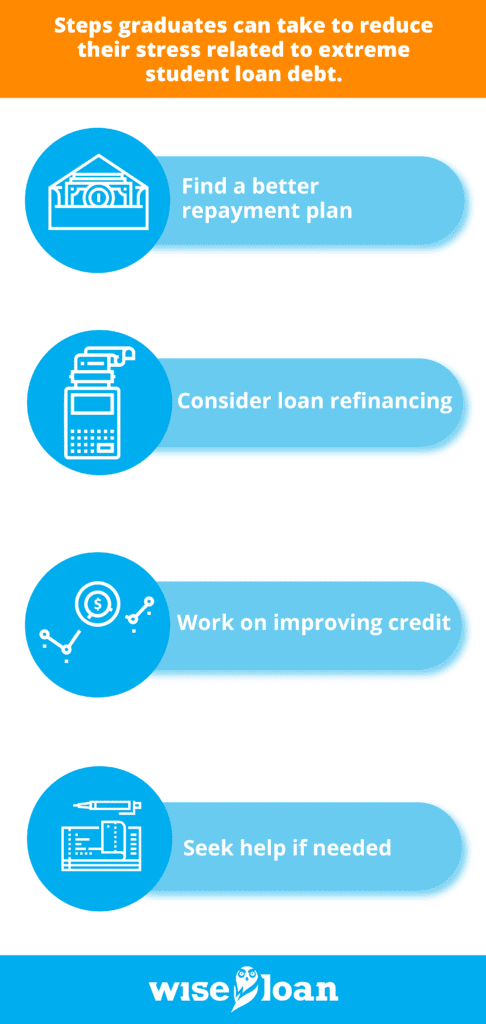Financial stress, particularly related to student loan debt, has become increasingly prevalent. According to a survey conducted by Student Loan Hero among over 1,000 borrowers, individuals with student loan debt experience higher stress levels compared to other demographics. The survey revealed that respondents reported feelings of anxiety, social isolation, insomnia, and headaches, all linked to their substantial student loan obligations.
Let’s delve into the survey results:
Psychological symptoms reported by respondents include social isolation (74%), apprehension or dread (55%), irritability (55%), depression (52%), restlessness (53%), and tenseness (51%), with an average of 56.67% of respondents reporting psychological distress.
Physical symptoms observed include headaches (72%), sleepless nights (65%), muscle tension (56%), and nausea (50%), with an average of 52.8% of respondents experiencing physical stress.
Overall, more than half of the respondents stated that they had noticeable and significant stress-related symptoms due to their student loan debt.
This is not surprising, considering that many graduates enter the workforce with a staggering average of tens of thousands of dollars in student loan debt. Another concerning statistic from the survey is that 61% of respondents feared their worries over student debt were spiraling out of control.
While there is no easy fix, there are steps graduates can take to reduce their stress related to extreme student loan debt.
- Find a better repayment plan: Income-driven repayment plans can be a viable option for graduates struggling to navigate a challenging job market. These plans can lower monthly payments to 10-20% of the individual’s discretionary income, allowing them to allocate more funds for essential expenses.
- Consider loan refinancing: Both federal and private loans can often be refinanced, with various companies offering competitive variable and fixed-interest rates. This can provide graduates with more manageable payment options.
- Work on improving credit: Addressing other damaging credit items in their history can be beneficial for borrowers. By reducing or eliminating credit card debt, individuals can free up additional funds each month to meet their student loan payments. Improving credit scores also opens up the possibility of securing better interest rates on personal loans for debt consolidation.
- Seek help if needed: If credit issues are overwhelming, working with a credit repair company can be a sensible approach. However, it’s crucial to remember that bankruptcy does not absolve student loan debt. Nonetheless, numerous alternatives exist for most consumers to tackle their financial challenges. Facing these issues head-on and seeking help when necessary are crucial steps towards finding a solution.

In conclusion, financial stress related to student loan debt is a pressing concern for many. Implementing strategies to manage the burden and seeking support when needed can make the journey toward financial stability less daunting.
The recommendations contained in this article are designed for informational purposes only. Essential Lending DBA Wise Loan does not guarantee the accuracy of the information provided in this article; is not responsible for any errors, omissions, or misrepresentations; and is not responsible for the consequences of any decisions or actions taken as a result of the information provided above.










